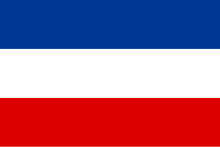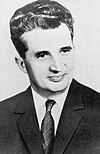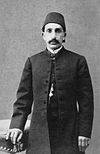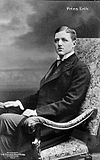1917 (MCMXVII) was a common year starting on Monday of the Gregorian calendar and a common year starting on Sunday of the Julian calendar, the 1917th year of the Common Era (CE) and Anno Domini (AD) designations, the 917th year of the 2nd millennium, the 17th year of the 20th century, and the 8th year of the 1910s decade. As of the start of 1917, the Gregorian calendar was 13 days ahead of the Julian calendar, which remained in localized use until 1923.
1942 (MCMXLII) was a common year starting on Thursday of the Gregorian calendar, the 1942nd year of the Common Era (CE) and Anno Domini (AD) designations, the 942nd year of the 2nd millennium, the 42nd year of the 20th century, and the 3rd year of the 1940s decade.
1943 (MCMXLIII) was a common year starting on Friday of the Gregorian calendar, the 1943rd year of the Common Era (CE) and Anno Domini (AD) designations, the 943rd year of the 2nd millennium, the 43rd year of the 20th century, and the 4th year of the 1940s decade.
1941 (MCMXLI) was a common year starting on Wednesday of the Gregorian calendar, the 1941st year of the Common Era (CE) and Anno Domini (AD) designations, the 941st year of the 2nd millennium, the 41st year of the 20th century, and the 2nd year of the 1940s decade.
1919 (MCMXIX) was a common year starting on Wednesday of the Gregorian calendar and a common year starting on Tuesday of the Julian calendar, the 1919th year of the Common Era (CE) and Anno Domini (AD) designations, the 919th year of the 2nd millennium, the 19th year of the 20th century, and the 10th and last year of the 1910s decade. As of the start of 1919, the Gregorian calendar was 13 days ahead of the Julian calendar, which remained in localized use until 1923.

1866 (MDCCCLXVI) was a common year starting on Monday of the Gregorian calendar and a common year starting on Saturday of the Julian calendar, the 1866th year of the Common Era (CE) and Anno Domini (AD) designations, the 866th year of the 2nd millennium, the 66th year of the 19th century, and the 7th year of the 1860s decade. As of the start of 1866, the Gregorian calendar was 12 days ahead of the Julian calendar, which remained in localized use until 1923.
1920 (MCMXX) was a leap year starting on Thursday of the Gregorian calendar and a leap year starting on Wednesday of the Julian calendar, the 1920th year of the Common Era (CE) and Anno Domini (AD) designations, the 920th year of the 2nd millennium, the 20th year of the 20th century, and the 1st year of the 1920s decade. As of the start of 1920, the Gregorian calendar was 13 days ahead of the Julian calendar, which remained in localized use until 1923.
1916 (MCMXVI) was a leap year starting on Saturday of the Gregorian calendar and a leap year starting on Friday of the Julian calendar, the 1916th year of the Common Era (CE) and Anno Domini (AD) designations, the 916th year of the 2nd millennium, the 16th year of the 20th century, and the 7th year of the 1910s decade. As of the start of 1916, the Gregorian calendar was 13 days ahead of the Julian calendar, which remained in localized use until 1923.
1937 (MCMXXXVII) was a common year starting on Friday of the Gregorian calendar, the 1937th year of the Common Era (CE) and Anno Domini (AD) designations, the 937th year of the 2nd millennium, the 37th year of the 20th century, and the 8th year of the 1930s decade.
1915 (MCMXV) was a common year starting on Friday of the Gregorian calendar and a common year starting on Thursday of the Julian calendar, the 1915th year of the Common Era (CE) and Anno Domini (AD) designations, the 915th year of the 2nd millennium, the 15th year of the 20th century, and the 6th year of the 1910s decade. As of the start of 1915, the Gregorian calendar was 13 days ahead of the Julian calendar, which remained in localized use until 1923.
1940 (MCMXL) was a leap year starting on Monday of the Gregorian calendar, the 1940th year of the Common Era (CE) and Anno Domini (AD) designations, the 940th year of the 2nd millennium, the 40th year of the 20th century, and the 1st year of the 1940s decade.
1897 (MDCCCXCVII) was a common year starting on Friday of the Gregorian calendar and a common year starting on Wednesday of the Julian calendar, the 1897th year of the Common Era (CE) and Anno Domini (AD) designations, the 897th year of the 2nd millennium, the 97th year of the 19th century, and the 8th year of the 1890s decade. As of the start of 1897, the Gregorian calendar was 12 days ahead of the Julian calendar, which remained in localized use until 1923.

1881 (MDCCCLXXXI) was a common year starting on Saturday of the Gregorian calendar and a common year starting on Thursday of the Julian calendar, the 1881st year of the Common Era (CE) and Anno Domini (AD) designations, the 881st year of the 2nd millennium, the 81st year of the 19th century, and the 2nd year of the 1880s decade. As of the start of 1881, the Gregorian calendar was 12 days ahead of the Julian calendar, which remained in localized use until 1923.
1874 (MDCCCLXXIV) was a common year starting on Thursday of the Gregorian calendar and a common year starting on Tuesday of the Julian calendar, the 1874th year of the Common Era (CE) and Anno Domini (AD) designations, the 874th year of the 2nd millennium, the 74th year of the 19th century, and the 5th year of the 1870s decade. As of the start of 1874, the Gregorian calendar was 12 days ahead of the Julian calendar, which remained in localized use until 1923.
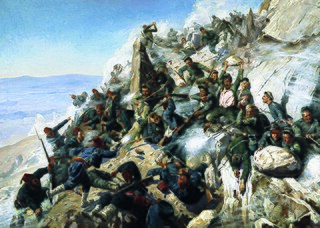
1877 (MDCCCLXXVII) was a common year starting on Monday of the Gregorian calendar and a common year starting on Saturday of the Julian calendar, the 1877th year of the Common Era (CE) and Anno Domini (AD) designations, the 877th year of the 2nd millennium, the 77th year of the 19th century, and the 8th year of the 1870s decade. As of the start of 1877, the Gregorian calendar was 12 days ahead of the Julian calendar, which remained in localized use until 1923.
1862 (MDCCCLXII) was a common year starting on Wednesday of the Gregorian calendar and a common year starting on Monday of the Julian calendar, the 1862nd year of the Common Era (CE) and Anno Domini (AD) designations, the 862nd year of the 2nd millennium, the 62nd year of the 19th century, and the 3rd year of the 1860s decade. As of the start of 1862, the Gregorian calendar was 12 days ahead of the Julian calendar, which remained in localized use until 1923.
1892 (MDCCCXCII) was a leap year starting on Friday of the Gregorian calendar and a leap year starting on Wednesday of the Julian calendar, the 1892nd year of the Common Era (CE) and Anno Domini (AD) designations, the 892nd year of the 2nd millennium, the 92nd year of the 19th century, and the 3rd year of the 1890s decade. As of the start of 1892, the Gregorian calendar was 12 days ahead of the Julian calendar, which remained in localized use until 1923.
1852 (MDCCCLII) was a leap year starting on Thursday of the Gregorian calendar and a leap year starting on Tuesday of the Julian calendar, the 1852nd year of the Common Era (CE) and Anno Domini (AD) designations, the 852nd year of the 2nd millennium, the 52nd year of the 19th century, and the 3rd year of the 1850s decade. As of the start of 1852, the Gregorian calendar was 12 days ahead of the Julian calendar, which remained in localized use until 1923.

The following events occurred in March 1918:
1865 (MDCCCLXV) was a common year starting on Sunday of the Gregorian calendar and a common year starting on Friday of the Julian calendar, the 1865th year of the Common Era (CE) and Anno Domini (AD) designations, the 865th year of the 2nd millennium, the 65th year of the 19th century, and the 6th year of the 1860s decade. As of the start of 1865, the Gregorian calendar was 12 days ahead of the Julian calendar, which remained in localized use until 1923.










